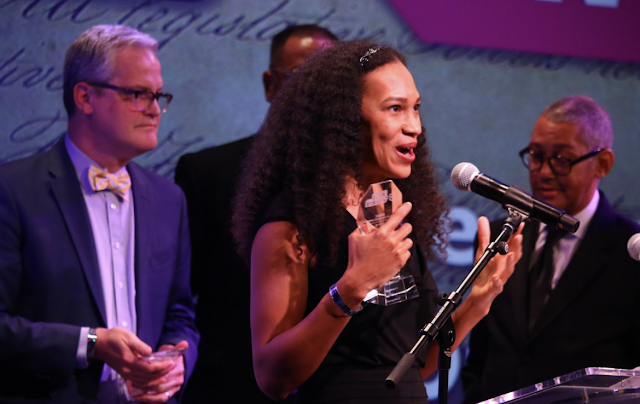Will Alicia Keys Portray Philippa Schuyler?
 |
| Philippa Schuyler |
As her concert schedule decreased in the early 1960s, Schuyler followed her father George Schuyler into journalism in her thirties. She supplemented her limited income by writing about her travels. She published more than 100 newspaper and magazine articles internationally, and was one of the few black writers for the United Press International.
Schuyler published four non-fiction books.
Schuyler's personal life was frequently unhappy since childhood. Her mother punished her severely with whippings, and she never made friends because she didn't attend school regularly. When she did attend school, she was ahead of other children her age, and was usually the only minority. Schuyler developed an inferiority complex about her race and viewed her blackness as a "stigma." Schuyler rejected many of her parents' values and viewed their interracial marriage as a mistake. She increasingly became a vocal feminist and made many attempts to pass herself off as a woman of Iberian (Spanish) descent named Felipa Monterro y Schuyler.
Although Schuyler engaged in a number of affairs, she never married. In 1965, she endured a dangerous late-term abortion in Tijuana after an affair with Ghanaian diplomat, because she did not want to have a child with a black man. Schuyler wanted to marry an Aryan man to boost her career and produce white-looking offspring.
Schuyler and her father were members of the John Birch Society. In addition to her native English language, she spoke French, Italian, Spanish, Portuguese, and German.
In 1966, Schuyler traveled to South Vietnam to perform for the troops and Vietnamese groups. She returned in April 1967 as a war correspondent and serve as a lay missionary.
On May 9, 1967, Schuyler was killed in a crash of a U.S. Army helicopter during a mission in Da Nang to evacuate Vietnamese orphans. 2,000 mourners attended her funeral at St. Patrick's Cathedral in New York City on May 18, 1967.
Schuyler's mother was profoundly affected by her death, and committed suicide a few days before the second anniversary of her death in 1969.
 |
| Halle Berry |
Hey Halle, call me!
Meanwhile, enjoy this recording of Philippa Schuyler playing Chopin.



I have heard the legend of Schuyler since my days as a young piano student of Faygon Teverbaugh in Chicago but I had never heard her play. She died the year I began with Teverbaugh at the Chicago Conservatory. I was 10. I have just listened to Schuyler's recording of this 3rd Scherzo. I LOVE LOVE LOVE this Scherzo...I even played it once .... very badly in public. That middle section tho...sublime!
ReplyDelete...And I'm listening to her play it....YES!!!! She makes it sparkle!! Thanks Sis!